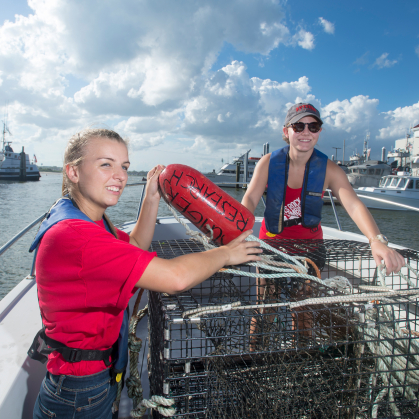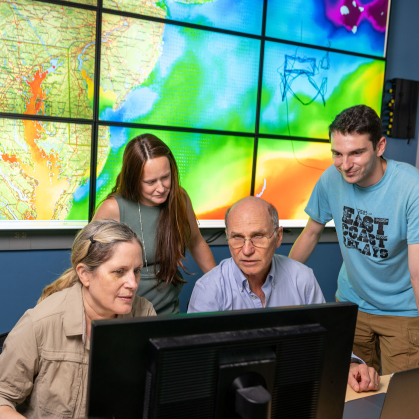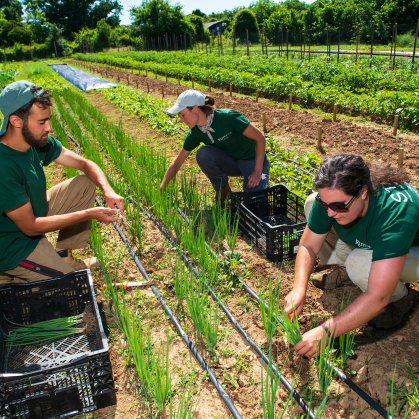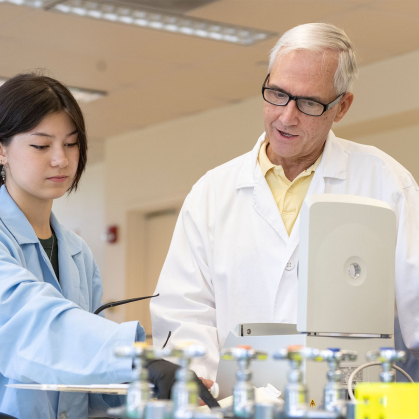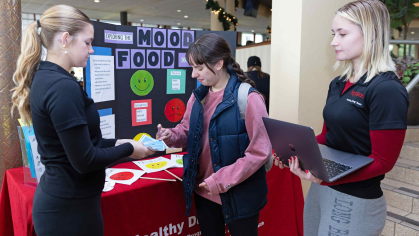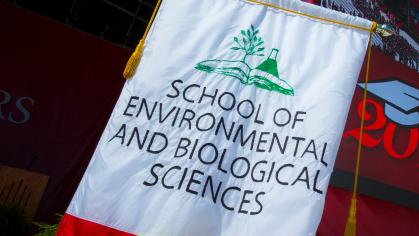Our students have access to many experiential learning opportunities throughout their academic career, including community service, research programs, study abroad, and more.
School of Environmental and Biological Sciences
From Molecules to Ecosystems, the World Is Yours to Explore
The School of Environmental and Biological Sciences (SEBS) at Rutgers University–New Brunswick prepares you to tackle the challenges facing the world today—from sustainable food systems to obesity, from water policy to clean energy, and from climate change to the link between the human genome, diet, and disease. The school’s curriculum combines classroom instruction with experiential learning, including field and lab work, internships, and study abroad opportunities.
Undergraduate majors
Research centers and institutes
in scholarships awarded to SEBS students annually
Full- and part-time undergraduate students
Student-to-faculty ratio
Academic Programs
Our curriculum is expertly designed to prepare you to tackle the challenges facing the world today—from sustainable food systems to wildlife conservation, from water policy to clean energy, and from climate change to the link between the human genome, diet, and disease.
We offer undergraduate and graduate programs in areas of studies such as Agriculture, Biology, Ecology, Environmental Sustainability, Food Systems, Nutrition, and more. Classroom instruction meets experiential learning with each major offering lab work, internships, and study abroad opportunities.
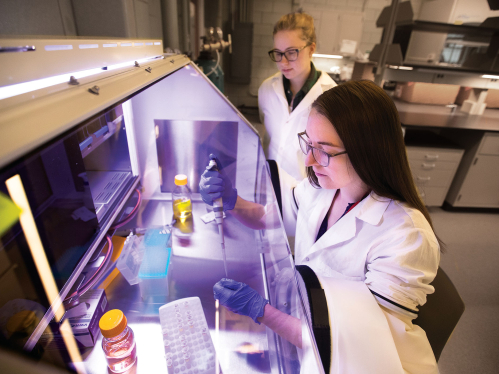
Program Spotlight:
Marine and Coastal Sciences
Students don’t just study the ocean—they explore it. From hands-on research aboard vessels to up-close encounters with marine life, the Marine and Coastal Sciences programs enable students to study our ocean planet. Students and faculty have the opportunity to go on scientific expeditions in the tropical and polar seas, utilizing state-of-the-art laboratories and research facilities. Undergraduates can choose focus areas such as Marine Biology/Biological Oceanography, Marine Chemistry, Physical Oceanography, Marine Geology, and more.

Beyond the Classroom
Imagine yourself in a caring, community-oriented learning environment that advances research and prepares you to succeed in your professional and academic life through experiential learning opportunities that extend beyond the classroom and into the field, laboratory, and community. If you can imagine this, you can imagine yourself at the School of Environmental and Biological Sciences.
On campus and off, our programs connect your studies to the real world through internships, study abroad, and research projects.
Our school includes a diverse array of farms, forests, research field stations, gardens, and preserves. We are re-envisioning various sites on campus as "living labs" – Places for students and faculty to experiment and experience green infrastructure, habitat creation, and food production.
Focusing on interdisciplinary, cutting-edge research, we are committed to studying how human and environmental health intersects with creating a healthy and sustainable future. We are dedicated to providing students valuable research opportunities through grants and partnerships with research centers.
Program Spotlight: Biology, Ecology, and Environmental Science
Choose from 11 majors, 17 minors, or several certificates and dual degree opportunities taught by experienced faculty in the world of biology, ecology, and environmental sciences. SEBS offers more than just lectures and labs – You get hands-on research experience working alongside acclaimed scientists to build a strong foundation for careers in diverse areas of interest such as Animal Science, Biochemistry, Microbiology, Biotechnology, Marine Sciences, Meteorology, and more.
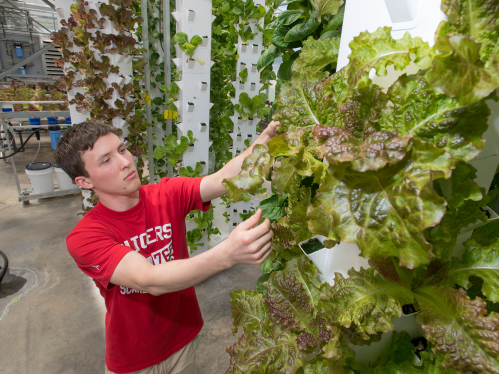
Alumni Spotlight
Mamadou Ndiaye (SEBS’19)
After graduating from SEBS with a degree in environmental sciences, Ndiaye became a field technician for a NYC environmental management company. Then COVID hit and he lost his job like many others that required in-person work. As we learn in his interview with NJ.com, Ndiaye found a niche in TikTok videos that would channel his passion for animals and the environment.
At the time, he didn’t anticipate that the general public would share his “animal nerd” interests. After four years and a billion "likes" on TikTok, Ndiaye is now his own boss, working full time making edutainment content.

Discover the School of Environmental and Biological Sciences
Students at the School of Environmental and Biological Sciences gain a deeper understanding of our physical world and the human impact on it.
